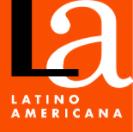La Ethnography in the way of theory
Keywords:
ethnography and critical theory, fieldwork and life stories, exchanges between Clastres, Deleuze and Guattari, concept work, human becomings, the unfinishedness of anthropologyAbstract
In this article, I return to my engagements with people in the field not only to address the specific circumstances and trajectories I encountered there, but to make a case for allowing our engagement with Others to determine the course of our thinking about them and to reflect more broadly upon the agonistic and reflexive relations between anthropology and philosophy. I do so in order to suggest that through ethnographic rendering, people’s own theorizing of their conditions may leak into, animate, and challenge present-day regimes of veridiction, including philosophical universals and anthropological subjugation to philosophy. I am interested in how ethnographic realities find their way into theoretical work. Using the mutual influence between Pierre Clastres and Gilles Deleuze and Félix Guattari as a case study, I argue against reducing ethnography to protophilosophy. The relationship, in fact, may be more productively seen as one of creative tension and cross-pollination. This sense of ethnography in the way of (instead of to) theory—like art—aims at keeping interrelatedness, precariousness, curiosity, and unfinishedness in focus. In resisting synthetic ends and making openings rather than absolute truths, ethnographic practice allows for an emancipatory reflexivity and for a more empowering critique of the rationalities, interventions, and moral issues of our times. I conclude with a literal return to the field and reflect on how the story of lives continues.References
Agamben, Giorgio (1998). Homo sacer: Poder soberano y la nuda vida. Trad. es. Antonio Gimeno Cuspinera. Valencia, PRE-TEXTOS.
Bateson, Gregory (1990). Naven. Un ceremonial Iatmul. Trad. es. Ramón M. Castellote. Barcelona, Ediciones Júcar.
—(1998). Pasos hacia una ecología de la mente. Una aproximación revolucionaria a la autocomprensión del hombre. Trad. es. Ramón Alcalde. Buenos Aires, Lohlé-Lumen.
Berlant, Lauren (2011). Cruel Optimism. Durham, NC, Duke University Press.
Bessire, Lucas (2011). “Apocalyptic Futures: The Violent Transformation of Moral Human Life among Ayoreo-Speaking People of the Paraguayan Gran Chaco.”, American Ethnologist, Vol. 38, Nº 4, pp. 743–757.
—(2006). From Honey to Ashes. Watertown, MA, Documentary Educational Resources.
Biehl, João (2005). Vita: Life in a zone of social abandonment. Berkeley, University of California Press.
Biehl, João y Locke, Peter (2010). “Deleuze and the Anthropology of Becoming.”, Current Anthropology, Vol. 51, Nº 3, pp. 317-351.
Biehl, João, y McKay, Ramah (2012). “Ethnography as a Political Critique.”, Anthropological Quarterly, Vol. 85, Nº 4, pp. 1211-1230.
Biehl, João, y Moran-Thomas, Amy (2009). “Symptom: Subjectivities, Social Ills, Technologies.”, Annual Review of Anthropology, Nº 38, pp. 267-288.
Biehl, João, y Petryna, Adriana (eds.) (2013). When people come first: critical studies in global health. Princeton, NJ, Princeton University Press.
Bourgois, Philippe y Schoenberg, Jeffrey (2009). Righteous Dopefiend. Berkeley, University of California Press.
Clastres, Pierre (1998). Chronicle of the Guayaki Indians. New York, Zone Books.
—(1978) La sociedad contra el Estado. Trad. es. Ana Pizarro. Caracas, Monte Ávila Editores.
—(1987a). “Los marxistas y su antropología”. Trad. es. Mercedes Córdoba y Magro. Vuelta, Nº 122, pp. 10-15.
—(1987b). “Una etnografía salvaje”, en: Investigaciones en antropología política. Trad. es. Estela Ocampo. México D.F., Gedisa Mexicana, pp. 33-43.
Das, Veena, y Poole, Deborah (eds.) (2004). Anthropology in the margins of the state. Santa Fe, NM, School of American Research Press.
Deleuze, Gilles (1995). “Control y devenir”, en: Conversaciones. 1972-1990. Trad. es. José Luis Pardo. Valencia, PRE-TEXTOS, pp. 265-286.
—(1996). Crítica y clínica. Trad. es. Thomas Kauf. Barcelona, Anagrama.
—(1998). “Having an idea in cinema”, enDeleuze y Guattari: New Mappings in Politics, Philosophy, and Culture. Eleanor Kaufman y Kevin Jon Heller (eds.), Minneapolis, University of Minnesota Press, pp. 14-19.
Deleuze, Gilles y Guattari, Félix (1985). El Anti Edipo. Trad. es. Francisco Monge. Barcelona, Paidós Ibérica.
—(2002). Mil mesetas. Trad. es. José Vázquez Pérez. Valencia, PRE-TEXTOS.
Eliot, T. S. (1989). Cuatro cuartetos. Trad. es. José Emilio Pachecho. México D.F., Fondo de Cultura Económica.
Fischer, Michael M. J. (2010). Comment on João Biehl and Peter Locke”s Article “Deleuze and the Anthropology of Becoming.”, Current Anthropology, Vol. 51, Nº 3, pp. 337-338.
Foucault, Michel (1999ª). “El filósofo enmascarado”. Trad. es. Ángel Gabilondo, en: Estética, ética y hermenéutica. Obras esenciales. Volumen III. Barcelona-Buenos Aires, Paidós, pp. 217-224.
—(1999b). “¿Qué es un autor?”. Trad. es. Miguel Morey, en: Entre fi-losofía y literatura. Obras esenciales I. Barcelona, España, Paidós, pp. 329-360.
—(2008). Historia de la sexualidad. Trad. es. Buenos Aires, Siglo XXI.
Freud, Sigmund (1993). “El sentido de los síntomas” Trad. es., en: Obras completas. Tomo XVII. Sigmund Freud. Buenos Aires, Amorrortu Editores.
Garcia, Angela (2010). The Pastoral Clinic: Addiction and Dispossession along the Rio Grande. Berkeley, University of California Press.
Geertz, Clifford (1996a). Tras los hechos. Dos países, cuatro décadas y un antropólogo. Barcelona, Paidós Ibérica.
—(1996b). “Anti-antirrelativismo”, en: Los usos de la diversidad. Barcelona, Paidós, pp. 95-127.
—(1998). “Deep Hanging Out”, New York Review of Books, October 22.
—(1999). Conocimiento local. Ensayos sobre la interpretación de las culturas. Trad. es. Alberto López Bargados. Barcelona, Paidós.
Guattari, Félix (2008). “In Flux.”, en:Chaosophy: Texts and Interview 1972–1977. Los Angeles, Semiotext(e), pp. 69–89.
Jackson, Michael D. (2004). In Sierra Leone. Durham, NC, Duke University Press.
—(2009). “An Anthropological Critique of the Project of Philosophy”, AnthropologicalTheory, Vol. 9, Nº 3, pp. 235-251.
Lacan, Jacques (1984). “La ciencia y la verdad”. Trad. es. Tomás Segovia y Armando Suárez, en: Escritos 2. Jacques Lacan. Buenos Aires, Siglo XXI Editores, pp. 834-856.
Lévi-Strauss, Claude (1988). Tristes trópicos. Trad. es. Noelia Bastard. Barcelona, Paidós.
—(1995). Saudades do Brasil: A Photographic Memoir. Seattle, University of Washington Press.
Malinowski, Bronislaw (2013). Edipo destronado. Sexo y represión en las sociedades primitivas. Trad. es. Madrid, Errata Naturae.
Marcus, George (2013). “Los legados de Writing Culture y el futuro cercano de la forma etnográfica: un boceto”. Trad. es. Juan Manuel Espinosa, Antípoda. Revista Antropología y Arqueología, Nº 16, pp. 58-90.
Morris, Rosalind (ed.) (2010). Can the subaltern speak?: Reflections on the history of an idea. New York, Columbia University Press.
Moyn, Samuel (2004). “Of Savagery and Civil Society: Pierre Clastres and the Transformation of French Political Thought.”, Modern Intellectual History, Vol. 1, Nº 1, pp. 55-80.
Rabinow, Paul (1992). Reflexiones sobre un trabajo de campo en Marruecos. Trad. es. Pedro Horrillo Calderón. Barcelona, Ediciones Júcar.
—(2011). The Accompaniment: Assembling the Contemporary. Chicago, University of Chicago Press.
Rabinow, Paul, y Rose, Nikolas (2012). “Biopoder hoy”. Trad. es. Corina Moscovich. En: Espacios Nueva Serie, Nº 7 (2). Estudios de Biopolítica. Santa Cruz, Universidad Nacional de la Patagonia Austral, pp. 308-336.
Rouch, Jean (2003). Ciné-Ethnography. Steven Feld, ed., trans. Minneapolis, University of Minnesota Press.
Scheper-Hughes, Nancy (2001). Saints, Scholars, and Schizophrenics: Mental Illness in Rural Ireland. 20th anniversary edition. Berkeley, University of California Press.Stewart, Kathleen (2007). Ordinary Affects. Durham, NC, Duke University Press.
—(2011). “Precarity”s Form”, Paper presented at the Annual Meeting of the American Anthropological Association, November 25. Posted on the Supervalent Thought blog:http://supervalentthought.com/sensing-precarity-allison-stewart-garcia-erlantmclean-biehl/.
Viveiros de Castro, Eduardo (2010). “The Untimely, Again”, Introduction to Archaeology of Violence. Pierre Clastres, Los Angeles, Semiotext(e), pp. 9-51.
























